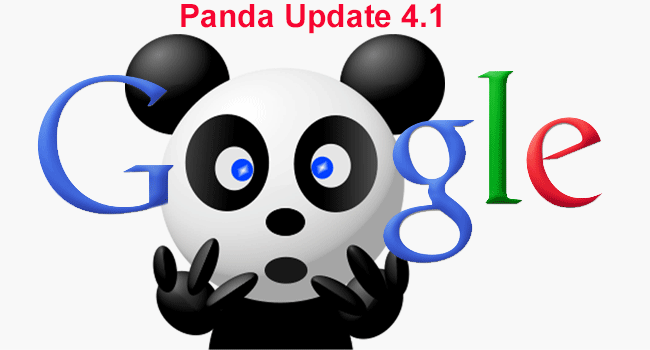How Google's Panda 4.1 Affects Your Website
Jobs

How Google's Panda 4.1 Affects Your Website
- 06 Oct 2014
This algorithm, which is one of three related, that Google has successfully created and continues to update and modify periodically, is called Panda. While the Penguin algorithm deals with unnatural links used to cheat and up a websites positioning, and the Hummingbird algorithm, which focuses on understanding what people mean when they search, Panda is a whole different ballgame.
Through three key processes, Google is able to determine that you have a site, see what is on that site, and store that sites’ information in a database to recall when a user enters a query on its search engine. When these actions are performed, Google initiates a fresh, quick quality score base on Page Rank, and a number of other factors to determine where each entry should show on the search engine. Panda, with its most recent update to 4.1 (September 2014), is formulated to boost more websites of higher quality to the top of your search results, and to demote lower quality sites to the bottom. What Google agrees is good quality, depends on the content of your site. There are three things that could affect your site’s quality rating, an in return, affect your position in search results.
- Not having enough content. Usually, pages with little to no content are very little help to users who are looking for something. Within that content must be actual text. Google’s bots that are used to crawl and index your site, often have difficulty navigating websites overloaded with pictures and videos. You can of course have media of that nature on your page, but you don’t want that to be your only source of information you offer. If you have a good number of pages that does not present any value to the user, Panda will mark your entire website as low quality.
- Duplicate or non-original content. Google has gotten very adept at figuring out if you are the source or creator of the content, or if you copied from another source. Not in the sense that you are plagiarizing, but the Panda algorithm can tell if you have content on your website that was created on another site. Likewise, if you have a lot of duplication on your site, such as numerous pages with almost the exact same content, Google will identify this as duplicate content. E-Commerce sites usually are affected by this the most, depending on product colors and size they carry.
- Low quality or poor content, i.e. little to no value. It is not enough to simply add content to your page, even if it is original. There must be some value to what you publish. This means you cannot merely write content for the sole purpose of adding non duplicated content. Your site must be engaging to users, and relevant to what they are looking for. This includes spam comments on your site. If people are not commenting, or commenting about spam over and over, Google will mark it as low quality.
These issues can seem relatively easy to fix, but it can take a lot of time and effort. The Panda algorithm refreshes approximately once a month, however Google only announces major updates, and usually it’s those updates that are announced that will make the most impact to improve your standing. Google does listen to site owners when they have concerns about the impact that Panda has on their site, in addition to users who want the most relevant, quality sites when they enter a search query. MediaLinkers has listened as well, adding to the staff, a content writer that can provide quality content that fits the criteria that Google deems as quality content. This includes text, blogs, newsletters, and social media posting. We would be more than happy to set up a free consultation to go over your content requirements. Give us a call today!
Copyright © 2002 - 2025 Multi-Tech MediaLinkers, LLC. All Rights Reserved

